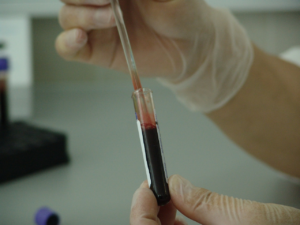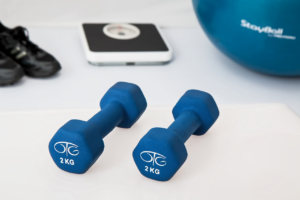Are you considering a career in nursing? Before you can begin your journey, you’ll need to pass the nursing pre-entrance exam. This exam is designed to assess your knowledge and skills in areas such as math, science, reading comprehension, and critical thinking. It’s a crucial step in the admissions process for nursing programs, and it’s important to be well-prepared.
In this article, we’ll provide you with key information about the nursing pre-entrance exam and offer study tips to help you succeed. We’ll cover the exam format and content, as well as strategies for developing a study plan, reviewing basic math and science concepts, improving reading comprehension and critical thinking, and practicing test-taking strategies.
With the right preparation, you can approach the nursing pre-entrance exam with confidence and increase your chances of success.
Key Takeaways
- The nursing pre-entrance exam is necessary to begin a career in nursing and assesses knowledge and skills in math, science, reading comprehension, and critical thinking.
- Effective study strategies, such as starting early, breaking material down, setting goals, and managing time, can help identify strengths and weaknesses and craft a personalized study plan.
- The exam covers various subjects including math, science, reading comprehension, and vocabulary, and improving reading comprehension and critical thinking is crucial for success.
- Test-taking strategies, such as effective time management and managing test anxiety, and seeking additional support from tutoring services or study groups can also be helpful.
Understand the Exam Format and Content
Get ready to dive into the nitty-gritty of the nursing pre-entrance exam format and content, so you can ace it like a pro!
The exam typically consists of multiple-choice questions covering various subjects, including math, science, reading comprehension, and vocabulary. It’s essential to familiarize yourself with the exam format and content to prepare effectively.
To do this, you can use exam preparation resources such as study guides, practice tests, and online courses. These resources can help you identify your strengths and weaknesses, allowing you to focus your study efforts on areas that need improvement.
Additionally, it’s crucial to avoid common mistakes such as cramming the night before the exam or neglecting to read the instructions carefully.
By understanding the exam format and content and using effective study strategies, you can increase your chances of success on the nursing pre-entrance exam.
Develop a Study Plan
Crafting a personalized plan that fits your schedule and learning style is crucial to acing the nursing pre-entrance exam. With so much content to cover, it’s important to prioritize your time and focus on the areas where you need the most improvement.
Here are some tips for developing a study plan that will help you succeed:
- Start early: Don’t wait until the last minute to start studying. Give yourself plenty of time to review the material and practice answering questions.
- Use study resources: There are many resources available to help you prepare for the exam, including review books, online courses, and practice tests. Take advantage of these tools to supplement your study plan.
- Break it down: Rather than trying to study everything at once, break the material down into manageable chunks. Focus on one topic or section at a time, and don’t move on until you feel comfortable with the material.
- Set goals: Set specific, measurable goals for yourself, such as completing a certain number of practice questions each day or mastering a particular topic by a certain date. This will help keep you motivated and on track.
- Manage your time: Use your time wisely and make sure to schedule regular breaks to rest and recharge. Avoid cramming or pulling all-nighters, as this can actually hurt your performance on the exam.
By following these tips and crafting a study plan that works for you, you’ll be well on your way to acing the nursing pre-entrance exam. Remember to stay focused, stay motivated, and trust in your preparation.
Review Basic Math and Science Concepts
Before you dive into preparing for the nursing pre-entrance exam, make sure to review basic math and science concepts. This will give you a strong foundation for success and help you feel more confident when taking the test.
Math review is especially important, as the exam will test your knowledge of basic arithmetic, algebra, and geometry. Make sure to brush up on these concepts, including fractions, decimals, percentages, and basic equations.
In addition to math review, it’s also important to review basic science concepts. The nursing pre-entrance exam will test your knowledge of biology, chemistry, and physics, so make sure to review these subjects as well.
Focus on understanding key concepts and terminology, such as the structure of cells, the periodic table of elements, and basic laws of physics.
By reviewing these basic math and science concepts, you’ll be better prepared to tackle the nursing pre-entrance exam and achieve your goal of becoming a nurse.
Improve Reading Comprehension and Critical Thinking
Boost your test-taking skills by enhancing your reading comprehension and critical thinking abilities, which are crucial for success on the nursing pre-entrance exam. Here are four tips to help you improve your abilities in these areas:
-
Effective note-taking: Pay attention to the details in the passages and take notes to help you remember important points. Write down key words and phrases that stand out to you, and summarize the main ideas in your own words.
-
Vocabulary building: Expand your vocabulary by reading a variety of materials, such as novels, newspapers, and scientific articles. Look up unfamiliar words and try to use them in your everyday conversations to reinforce your understanding.
-
Practice critical thinking: While reading, ask yourself questions about the author’s purpose, argument, and evidence. Analyze the information and evaluate the strengths and weaknesses of the argument.
-
Time management: Practice reading passages under timed conditions to build your speed and accuracy. Make sure to pace yourself and allocate enough time to carefully read and analyze each passage.
Practice Test-Taking Strategies
By implementing effective test-taking strategies, you can maximize your potential and confidently tackle any exam that comes your way.
One of the most important strategies is time management. It’s crucial to allocate your time wisely and not spend too much time on any one question. If you’re unsure about a question, skip it and come back to it later. This will ensure that you have enough time to answer all the questions and avoid leaving any unanswered.
Another important strategy is to manage test anxiety. It’s normal to feel nervous before an exam, but excessive anxiety can negatively impact your performance. To manage test anxiety, try deep breathing exercises or visualization techniques to calm your nerves.
Additionally, make sure to get a good night’s sleep before the exam and eat a healthy breakfast to fuel your brain. By implementing these test-taking strategies, you can approach the nursing pre-entrance exam with confidence and increase your chances of success.
Seek Additional Support
If you’re struggling with test-taking, don’t hesitate to seek additional support from resources such as tutoring services or study groups. These resources can provide you with extra guidance and help you develop effective study habits. Tutoring services can offer one-on-one guidance and support, while study groups can provide a collaborative learning environment where you can share knowledge and ideas with your peers.
When considering tutoring services, look for options that specialize in nursing pre-entrance exam preparation. These services can provide personalized support and guidance specifically tailored to the exam and its content. Additionally, study groups can be a great way to connect with other nursing students and learn from their experiences. Joining a study group can also help you stay motivated and on track with your studying. Overall, seeking additional support can make a big difference in your exam preparation and help you feel more confident and prepared come test day.
| Pros of Tutoring Services | Cons of Tutoring Services | Pros of Study Groups | Cons of Study Groups | ||||||
|---|---|---|---|---|---|---|---|---|---|
| Personalized support and guidance | Can be expensive | Collaborative learning environment | May not fit with your schedule | ||||||
| Tailored to exam content | May not be a good fit for your learning style | Opportunity to learn from peers | Group dynamics may not work for everyone | ||||||
| Can provide structure and accountability | May not be available in your area | Offers motivation and support | May not cover all exam content | Can be a cost-effective option | May not offer individualized attention or feedback | Can help with time management and study strategies | May not fit with your schedule or availability | Can be a great way to build relationships and connections with others in your field. |
Frequently Asked Questions
What is the passing score for the Nursing Pre-Entrance Exam?
To pass the nursing pre-entrance exam, you need to be aware of the passing score which varies by institution. The exam duration and format also differ depending on the school.
It’s important to familiarize yourself with the exam structure and content so you can adequately prepare. Utilize study resources such as practice exams, review books, and online resources to maximize your chances of success.
Keep in mind that the passing score is just one aspect of the exam, and your overall performance is what matters most. So, stay focused, study hard, and give it your best shot!
How long is the Nursing Pre-Entrance Exam?
The nursing pre-entrance exam typically lasts around three hours. To prepare for the exam, it’s important to have a solid understanding of the subject matter, including anatomy, physiology, and basic math skills.
Practice tests can be helpful in identifying areas where you need to focus your study efforts. Additionally, make sure to get plenty of rest and eat a healthy meal before the exam to ensure that you’re alert and focused.
Finally, try to relax and stay calm during the exam, as stress and anxiety can negatively impact your performance. By following these preparation strategies, you can feel confident and prepared going into the exam.
Are there any breaks during the Nursing Pre-Entrance Exam?
When it comes to taking exams, test-taking strategies are important to keep in mind. Mental preparation is also key in ensuring that you do your best. With that being said, it’s understandable to wonder if there are any breaks during the nursing pre-entrance exam.
While it’s important to take care of your physical needs, it’s also crucial to manage your time wisely during the exam. One strategy is to take advantage of any breaks that are given and use them wisely. However, it’s important to note that not all exams have breaks, so it’s best to check with the exam provider beforehand.
Regardless, mentally preparing yourself and developing effective test-taking strategies can help you excel on the exam.
Can I use a calculator during the math section of the Nursing Pre-Entrance Exam?
Yes, you can use a calculator during the math section of the nursing pre-entrance exam.
However, it’s important to note that not all test accommodations are the same for every exam. Some exams may allow the use of a calculator, while others may not.
It’s always best to check with the testing center or the exam administrator to see what accommodations are available for your specific exam.
Additionally, it’s important to practice using a calculator before the exam to ensure that you’re comfortable and efficient with its use.
How often can I retake the Nursing Pre-Entrance Exam if I don’t pass?
If you don’t pass the nursing pre-entrance exam, you can usually retake it after a certain period of time. However, there may be a limit on how many times you can retake the exam, so it’s important to prepare thoroughly before taking it again.
Some preparation strategies include reviewing the material covered on the exam, practicing with sample questions, and seeking out additional resources such as study guides or tutoring services. It’s also important to address any areas where you struggled on the exam and work on improving your skills in those areas.
With the right preparation and dedication, you can increase your chances of passing the nursing pre-entrance exam and achieving your goals in the field of nursing.
Conclusion
Congratulations! You’ve gained valuable insights on preparing for the nursing pre-entrance exam.
To ace the exam, it’s important to understand the format and content, develop a study plan, review basic math and science concepts, improve reading comprehension and critical thinking, practice test-taking strategies, and seek additional support.
Remember, passing the nursing pre-entrance exam is crucial for achieving your dream of becoming a nurse. With determination, hard work, and the right mindset, you can succeed.
So, put these study tips into practice and best of luck on your exam!





















































































































